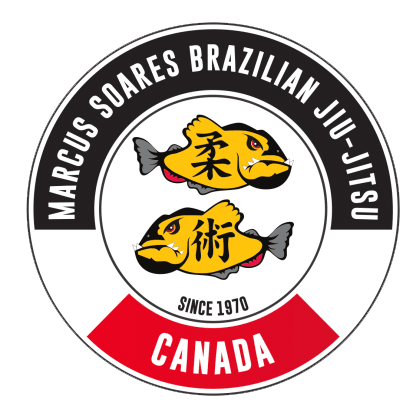In Brazilian Jiu-Jitsu (BJJ), the physical demands placed on the body require an intentional approach to training that encompasses both on and off-the-mat practices. To achieve optimal performance, prevent injuries, and ensure longevity in the martial art, incorporating effective pre- and post-training routines is essential. At Marcus Soares Brazilian Jiu-Jitsu Academy, our expert instructors are dedicated to helping students understand these routines’ importance and establishing personalized strategies to enhance their BJJ journey, maximize performance, and minimize injury risk.
In this blog post, we will explore the significance of pre- and post-training routines in BJJ, discussing the components of effective warm-ups, cool-downs, and recovery strategies. Additionally, we will delve into the role of nutrition and mental preparation in supporting a successful BJJ practice. Lastly, we will highlight how Marcus Soares Brazilian Jiu-Jitsu fosters a comprehensive approach to student education, emphasizing the importance of these routines both inside and outside the dojo.
Join us as we uncover the essential elements of pre- and post-training routines in Brazilian Jiu-Jitsu and learn how Marcus Soares Brazilian Jiu-Jitsu offers valuable guidance and expertise in establishing habits that promote longevity, performance, and injury prevention in this dynamic martial art.
The Significance of Effective Warm-ups in BJJ
1. Enhancing Mobility and Flexibility: A thorough warm-up routine includes dynamic exercises to improve joint mobility and flexibility, preparing the body for the specific movements and positions in BJJ.
2. Increasing Blood Flow and Muscle Temperature: Raising your heart rate through various exercises like jogging and jumping jacks helps increase blood flow and muscle temperature, reducing the risk of injuries.
3. Mental Preparation: Warm-ups also provide an opportunity to mentally prepare for the upcoming BJJ session, promoting focus and mental readiness for effective training and learning.
4. Marcus Soares Brazilian Jiu-Jitsu’s Approach: Our expert instructors emphasize the importance of a thorough warm-up routine and guide students in executing movements and exercises that activate critical muscle groups for Brazilian Jiu-Jitsu practice.
The Role of Cool-downs and Recovery in BJJ
1. Reducing Post-Training Muscle Soreness: A proper cool-down, including static stretches and relaxation techniques, helps alleviate muscle tightness and prevent excessive soreness following a BJJ session.
2. Promoting Flexibility and Mobility Maintenance: Consistent post-training stretching and mobility exercises support long-term flexibility, helping practitioners reduce injury risk and improve overall performance in BJJ.
3. Recovery Strategies: Engaging in activities such as foam rolling, massage, and hydrotherapy contribute to muscle recovery, reduce inflammation, and maintain overall physical well-being.
4. Marcus Soares Brazilian Jiu-Jitsu’s Guidance: Our instructors encourage students to prioritize post-training routines and recovery strategies, offering personalized advice, and recommendations tailored to individual needs.
Nutrition’s Impact on BJJ Performance and Recovery
1. Pre-Training Fuel: Consuming a balanced meal combining carbohydrates, proteins, and fats before training ensures sustained energy levels and promotes optimal performance in BJJ sessions.
2. Post-Training Recovery: Refueling with a meal rich in carbohydrates, protein, and healthy fats following BJJ practice supports muscle recovery, glycogen replenishment, and immune system functioning.
3. Hydration: Prioritizing hydration before, during, and after training is essential to prevent dehydration, promote physical performance, and support overall health.
4. Marcus Soares Brazilian Jiu-Jitsu’s Nutritional Support: Our instructors guide optimal fueling strategies and proper nutrition for BJJ performance, recovery, and overall well-being.
Mental Preparation and its Impact on BJJ Performance
1. Goal Setting: Identifying specific, achievable goals for each BJJ session helps maintain a focused and purposeful mindset during practice.
2. Visualization: Mental imagery techniques can improve performance in BJJ by mentally rehearsing technical maneuvers and fostering self-confidence in executing them.
3. Mindfulness and Focus: Mindfulness practices, such as meditation, can enhance mental focus and resilience in BJJ training by increasing mental clarity and reducing anxiety.
4. Marcus Soares Brazilian Jiu-Jitsu’s Mental Preparation Emphasis: Our instructors recognize the significance of mental preparation in BJJ, guiding students in developing personalized strategies to enhance their mental game for optimal performance.
Conclusion:
Incorporating effective pre- and post-training routines is essential for maximizing performance, promoting longevity, and minimizing injury risk in Brazilian Jiu-Jitsu. By implementing thorough warm-up and cool-down protocols, focusing on proper nutrition, and cultivating mental preparedness, practitioners can fully engage in BJJ training and realize the full potential of their martial arts journey.
At Marcus Soares Brazilian Jiu-Jitsu, our expert instructors are dedicated to providing comprehensive guidance on establishing these routines, ensuring the enhancement of skills, physical prowess, and overall well-being for our students. Begin your Brazilian Jiu-Jitsu journey with the support, expertise, and resources provided by Marcus Soares Brazilian Jiu-Jitsu and experience the transformative power of a consistent, intentional, and holistic approach to BJJ practice.

